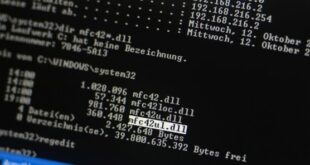For years, the U.S. intelligence community has warned that cyber attacks from China and other countries are the biggest threat to our national security. Now, some are wondering whether the death of an engineer from California could be linked to cyber espionage.
In 2010, 29-year-old Shane Todd moved to Singapore for an engineering job with a government research firm called the Institute of Micro Electronics or IME.
“He was a young man that wanted an adventure and thought it would be super-cool to live in a foreign country and he really liked it when he first got there,” Mary Todd, his mother, recalled.
But 18 months later in June of 2012, Shane Todd was found dead inside his apartment. Police and the coroner believe Todd hanged himself in the bathroom, leaving two suicide notes on his computer. But his family doubts that story.
“We have already gone to Singapore twice now, once to pick up our son’s body, and realize that nothing lined up with what were told,” Mary Todd said.
The Todd family believes Shane was murdered, but why? Todd’s parents says their son was under pressure from his employers at IME to get sensitive technology from the U.S. delivered to China, technology he believed could endanger our national security.
“He started calling us and saying, ‘Mom if you don’t hear from me every week, email me right away. If I don’t call you, call the U.S. Embassy. My life is being threatened,’ and that’s when he said that he felt he was being asked to compromise U.S. security,” his mother said.
His father, Rick Todd, recalled, “I said, ‘Shane, if you truly believe that, you need to come home now,’ and he said, ‘Dad, I can’t.'”
One of the companies in discussions with IME about the technology was the Chinese telecommunications giant Huawei. Last year, the House Intelligence Committee concluded Huawei represented a threat to the U.S. because it could be pressured by the Chinese government to help spy or steal technology.
60 Minutes: Huawei probed by Washington for security, espionage risk
Rep. Dutch Ruppersberger, D-Md., said, “If you’re gonna put your technology in our country and that allows you the ability to steal information or cyber attack our companies and our citizens, then we want to protect our citizens.”
In a statement, the Institute of Micro Electronics or IME said, “Neither IME nor Shane was involved in any classified research project. The Institute did not go beyond preliminary talks with Huawei.”
For its part, Huawei has denied any spying allegations, and said, “In the past, IME did approach Huawei seeking cooperation … but we declined.”
Mary Todd said, “Our goal is for the truth to be known, for our country to wake up and see that technology is being stolen, their brightest minds are being murdered, and we want it to stop.”
On Friday, Mary Todd and Rick Todd will meet with Sen. Max Baucus, D-Mont., who has spoken with White House officials and is pushing officials in Singapore for more details on what exactly happened to Shane Todd.
CBS News senior correspondent John Miller, a former FBI assistant director, said the Todds recovered a portable hard drive from Shane’s apartment a couple of days after he was found dead.
Miller said, “On that hard drive with as awful lot of data. It appears he had mirrored his computer at work on the hard drive. They gave it to experts in London who said, ‘This is technology that would have applications in civilian use, but also critical applications in military use,’ and they say there was actually somebody who went into that computer two days after he was dead and looked at some of that information. So there are some suspicious elements here.”
CBS
 Conspiracy Plot
Conspiracy Plot


